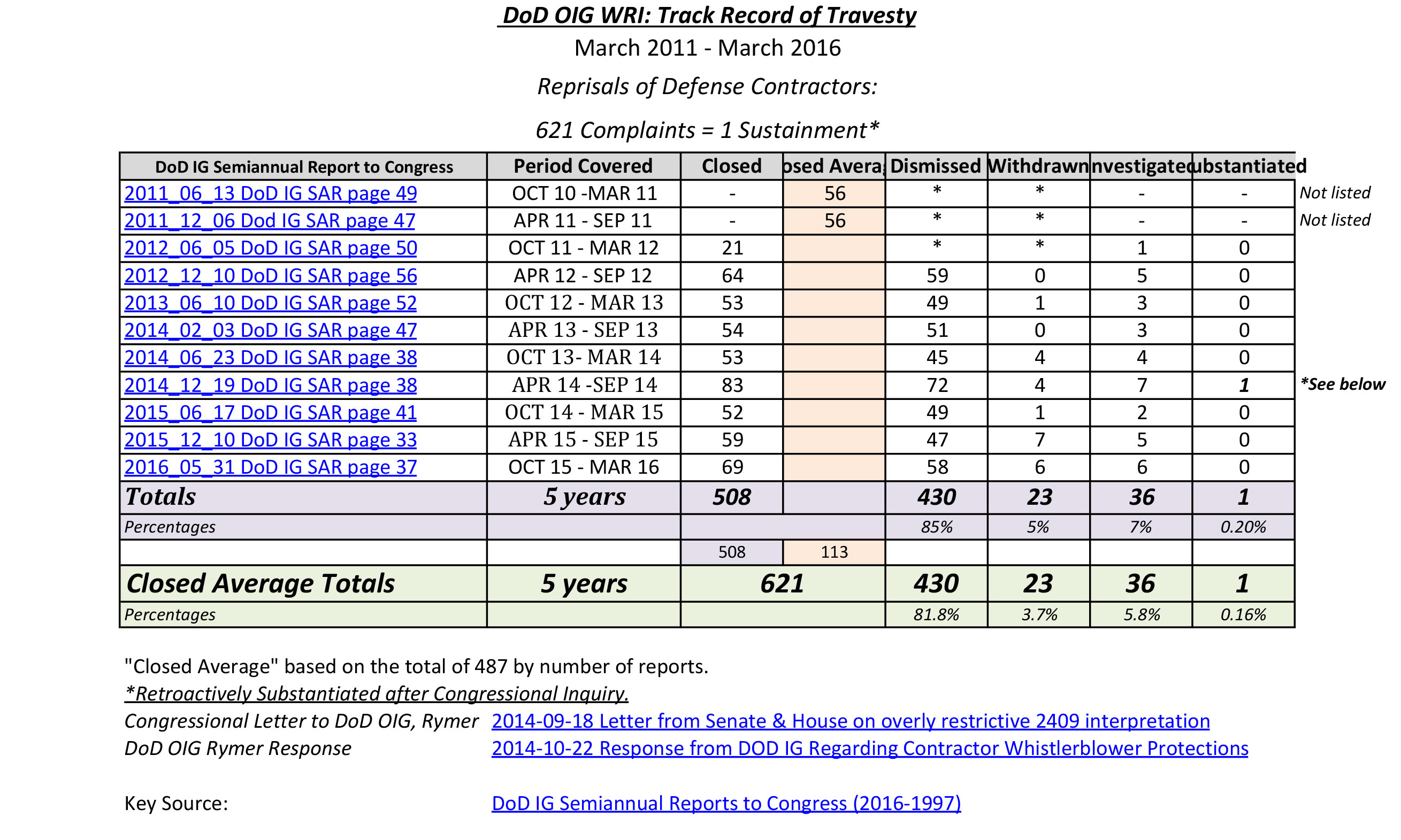
Sen. Claire McCaskill, D-Mo., is one of the lawmakers who signed the letter. Flickr user Senator Claire McCaskill
Lawmakers Blast Pentagon Watchdog, Following Complaints from Frustrated Whistleblowers
Letter to acting IG cites “persistent, systemic issues” in case management.
The Defense Department inspector general’s office, currently led on an acting basis by veteran watchdog Glenn Fine, has mishandled many would-be whistleblowers and needs new management tools, a bipartisan group of lawmakers said in a letter to the office released on Tuesday.
Despite some recent improvements, the watchdog continues to struggle with “delays in investigation, the lack of a fully implemented, reliable, and comprehensive case management system, ineffective oversight of service branch inspector general (Service IG) reprisal investigations, and allegations of reprisal and misconduct within the DoD OIG itself,” wrote Sens. Chuck Grassley, R-Iowa; Claire McCaskill, D-Mo.; and Kirsten Gillibrand, D-N.Y.; and Reps. Jason Chaffetz, R-Utah; and Elijah Cummings, D-Md. “We write to express our concerns regarding what appear to be persistent, systemic issues with the DoD OIG, and our hope that you will work diligently to help resolve them.”
The letter was triggered by Government Accountability Office reports on the Pentagon IG as well as news stories of individual aspiring whistleblowers who complained of inaction or reprisals, including coverage in Government Executive and McClatchy newspapers.
The letter cited cases involving both Defense Department personnel and contractors such as “chronic noncompliance with statutory notification requirements, poor case management, significant challenges in tracking and monitoring Service IG reprisal investigations, a lack of implementation of key recommendations from the Government Accountability Office, a low substantiation rate in reprisal cases, and allegations referred for investigation by the Office of Special Counsel to the Department of Justice Office of Inspector General that senior DoD OIG officials destroyed documents that would have helped a National Security Agency whistleblower.”
Grassley and McCaskill had written a similar query to the DoD IG in February.
The most recent case prompting the lawmakers’ action involves Michael Sandknop, an Iraq war veteran and Army Reserve master sergeant who was an Army Reserve public affairs supervisor when he retired in 2009. While working later as a contract videographer for the Missouri National Guard, he was fired in January 2014 after complaining—first through the chain of command-- that he had insufficient resources to perform his work, that his bosses berated him and that there was mismanagement of federal funds.
Sandknop filed a wrongful termination lawsuit in state court saying his supervisors in the Missouri National Guard public affairs office knowingly made false statements about him “to discredit, damage and smear” him after he sought help from the National Guard IG, which basically confirmed his complaint.
When he filed a complaint with the Pentagon IG in 2014, he told Government Executive, he received a reply from the DoD IG that “made no sense and didn’t say there was an appeals process.”
Nilgun Tolek, the Pentagon IG’s director of whistleblower reprisal investigations, wrote: “Your complaint does not warrant further investigation because your report of not being provided ‘proper’ equipment and being assigned tasks other than the half-hour television program was not a violation of a law, rule, or regulation related to the contract and therefore did not constitute protected disclosures as defined in 10 U.S.C. 2409. Accordingly, we have closed this case.”
Sandknop, who is now pursuing a career as a paralegal, said he was dumbfounded. “They didn’t say there was an appeals process,” he recalled. “Later I researched it and found that I needed to go to Eighth Circuit Court of Appeals. I was making $54,000 a year before I was fired, and with that letter from the DoD IG, what lawyer’s going to take that on?”
The Missouri National Guard, meanwhile, was playing “hide the ball,” he said, giving vague answers saying that some officers were retrained or disciplined after his complaint, about which he is skeptical.
It was only after Sandknop contacted staff counsel for the Senate Judiciary Committee, the legal counsel for Sen. McCaskill and his own congresswoman, Rep. Ann Wagner, R-Mo., that things began to move, he said.
“While the DoD IG was unwilling to investigate, the Senate Judiciary Committee was more than happy to investigate them after they heard my story,” he said.
Sandknop used DoD IG semi-annual reports to compile a list of the disposition of 621 reprisal complaints to the Pentagon IG’s office, showing that from March 2011-March 2016, 81.8 percent were dismissed, 36 (or 5.8 percent) were investigated, and only one was substantiated.

Inspector General Fine has agreed to reopen Sandknop’s investigation. The office had no comment Tuesday on the lawmakers’ new letter.
“I did not get fired for not doing my job, I got fired for being a whistleblower,” said Sandknop, who lives in Arnold, Mo., and does freelance video work for clients such as political campaigns. “I was absolutely screwed, but without the help of my congressional representatives, I would have gotten nowhere. It’s really rewarding to see them taking this strong action. If the Maryland-based contractor “would have given me my back pay, this never would have happened.”
The lawmakers’ letter asks the DoD IG to deliver, by June 30, answers to an array of questions such as what is being done to improve timeliness of investigations. It requests that the IG update its procedural manual for investigations and intakes, that it ensure that case management records are up to date, standardize investigations across services and “correct investigators’ practice of marking cases as fully investigated by Service IGs, when they were not.”
The letter also asks for numbers on how many complaints were dismissed, and how many conclusions were later altered.







